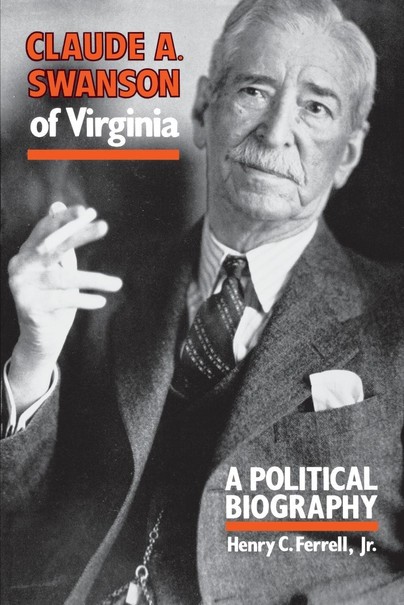Google Books previews are unavailable because you have chosen to turn off third party cookies for enhanced content. Visit our cookies page to review your cookie settings.
Claude A. Swanson of Virginia (Paperback)
A Political Biography
Imprint: University Press of Kentucky
Pages: 312
Illustrations: Illus
ISBN: 9780813152431
Published: 15th July 2014
Script Academic & Professional
Pages: 312
Illustrations: Illus
ISBN: 9780813152431
Published: 15th July 2014
Script Academic & Professional
This book will be reprinted and your order will be released in due course.
You'll be £27.00 closer to your next £10.00 credit when you purchase Claude A. Swanson of Virginia. What's this?
+£4.99 UK Delivery or free UK delivery if order is over £40
(click here for international delivery rates)
Order within the next 11 hours, 21 minutes to get your order processed the next working day!
Need a currency converter? Check XE.com for live rates
(click here for international delivery rates)
Order within the next 11 hours, 21 minutes to get your order processed the next working day!
Need a currency converter? Check XE.com for live rates
Spanning most of the years of the one-party South, the public career of Virginian Claude A. Swanson, congressman, governor, senator, and secretary of the navy, extended from the second administration of Grover Cleveland into that of Franklin Roosevelt. His record, writes Henry C. Ferrell, Jr., in this definitive biography, is that of "a skillful legislative diplomat and an exceedingly wise executive encompassed in the personality of a professional politician."
As a congressman, Swanson abandoned Cleveland's laissez faire doctrines to become the leading Virginia spokesman for William Jennings Bryan and the Democratic platform of 1896. His achievements as a reform governor are equaled by few Virginia chief executives. In the Senate, Swanson worked to advance the programs of Woodrow Wilson. In the 1920s, he contributed to formulation of Democratic alternatives to Republican policies. In Roosevelt's New Deal cabinet, he helped the Navy obtain favorable treatment during a decade of isolation.
The warp and woof of local politics are well explicated by Ferrell to furnish insight into personalities and events that first produced, then sustained, Swan-son's electoral success. He examines Virginia educational, moral, and social reforms; disfranchisement movements; racial and class politics; and the impact of the woman's vote. And he records the growth of the Hampton Roads military-industrial complex, which Swanson brought about.
In Virginia, Swanson became a dominant political figure, and Ferrell's study challenges previous interpretations of Virginia politics between 1892 and 1932 that pictured a powerful, reactionary Democratic "Organization," directed by Thomas Staples Martin and his successor Harry Flood Byrd, Sr., defeating would-be progressive reformers. A forgotten Virginia emerges here, one that reveals the pervasive role of agrarians in shaping the Old Dominion's politics and priorities.
Other titles in University Press of Kentucky...















